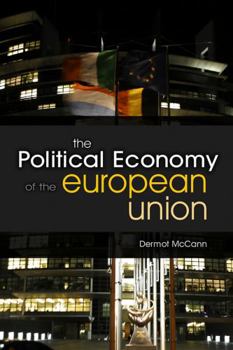The Political Economy of the European Union: An Institutionalist Perspective
The core business of the European Union is the creation of an integrated European market. The scale of this project is enormous, covering a wide variety of national 'models' of capitalism, many of which are marked by a heavy reliance on non-market institutions to govern and co-ordinate economic activity. The Political Economy of the European Union introduces students to the fundamentals of EU policy towards these national political economic governance institutions and the challenges arising from this evolving relationship.
Chapter 1 examines the role of institutions in governing capitalist systems. Chapter 2 explores the evolution of the EU's liberal ambition over the past five decades. Subsequent chapters then analyse the development of EU policy in relation to the governance of product, financial and labour markets. What sort of restructuring has it sought to achieve? How great a challenge do EU policies present to national practices? How effective have been its strategies of Europeanization? In short, to what extent has it effected a liberal transformation in the institutional governance of European capitalism? At issue are fundamental questions concerning the power and status of nation-states in the context of the most ambitious experiment in cooperative regional integration yet witnessed.





